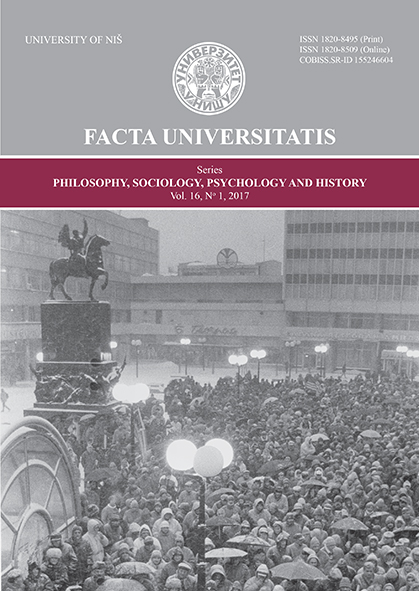Pacifism as an Ethical Response to War and Political Violence
Pacifism as an Ethical Response to War and Political Violence
Author(s): Duško PeulićSubject(s): Ethics / Practical Philosophy, Political Philosophy
Published by: Универзитет у Нишу
Keywords: Pacifism; Absolutist; Deontological; Consequentialist; Contingent
Summary/Abstract: An early perception of pacifism was known even in Latium, a small area in Ancient Rome. Its meaning, in the language then spoken, arose from the word (ficus) that personifies the very coming into being of harmonious relations between nations (pax). In other words, the term portrays creation of peace on a continuum from complete to moderate resistance to armed conflict while different arguments of abstract, spiritual and scriptural nature defend its core. Pacifism maxim that war is wrong as killing is wrong belongs to the primary theory virtues that the paper will attempt to visualize in sections of absolute, deontological, and consequentialist conviction as well as that of contingent belief and civil rights movements. Another hallmark refers to pacifists’ belief in nonviolence as what only defends the innocent or prevents breaking out the conflict. The theory disapproves armed dispute; it simultaneously means moderate opposition and denial of cruelty in building peace. It is concentrated on overruling war and represents, at the core, a moral attitude calling upon political philosophy to uphold the principled negation of war. Violence nowadays is an inevitable part of life, but insisting that taking up arms is not a part of the solution is what permeates discourses too.
Journal: FACTA UNIVERSITATIS - Philosophy, Sociology, Psychology and History
- Issue Year: 16/2017
- Issue No: 01
- Page Range: 13-24
- Page Count: 12
- Language: English

